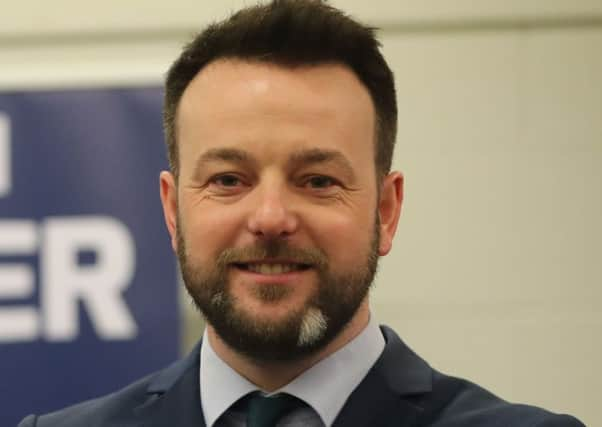No hiding place for police or Army suspects: Eastwood


Colum Eastwood said there should be no hiding place for any suspect, whether military, police or terrorist.
“How do we come to a position that says you committed a crime but because you were wearing a uniform you are not going to be investigated?
Advertisement
Hide AdAdvertisement
Hide Ad“I don’t think there should be any hiding place, in whatever structures are eventually agreed, for those people who committed murders in whatever name they were committing them in. I just don’t think that’s any way of going about the business of creating a different future,” said Mr Eastwood.
DUP MPs are campaigning in Westminster to support Army veterans who are facing prosecution for killings during the conflict.
Party leader Arlene Foster has claimed there is a “one-sided focus on what the State did”.
“Recently we have seen the attempts to put our soldiers and our police officers in the dock while those who maimed and murdered over the past 50 years walk free.
Advertisement
Hide AdAdvertisement
Hide Ad“The focus on the State has been an attempt to rewrite history and blame the State, while in reality the vast majority of murders were as a result of terrorist activity,” the former Stormont first minister said last week.
However, Mr Eastwood said he found Mrs Foster’s position “grossly offensive”.
“I can take you to homes now where people are still living with the scars of what was done to them by the British state. I can equally take you to houses where people are living with the scars because of what was done to them by paramilitary organisations such as the IRA,” he said.
Mr Eastwood said Northern Ireland’s past must be dealt with “head on” but insisted that the British government cannot be involved in any legacy-related negotiations post election.
Advertisement
Hide AdAdvertisement
Hide AdIn a recent article in the Sunday Telegraph, Northern Ireland Secretary of State James Brokenshire said the system for investigating Troubles murders was not working and was focused on soldiers rather than terrorists.
Other unionist and Conservative politicians have also said there is an imbalance.
PSNI figures show however that investigations into killings by the Army account for about 30% of its legacy workload.
“If you look at the way the British government has carried on in recent weeks, I don’t think they have any right to chair legacy negotiations. They were clearly inaccurate. They acted like an activist in terms of trying to rewrite what happened in the past,” said Mr Eastwood.
Advertisement
Hide AdAdvertisement
Hide AdHe added: “I think we need someone of an international standing, an independent standing, to come in and share the negotiations around legacy.
“The architectures are all there, it is just about making sure the British government and others live up to their responsibility.”